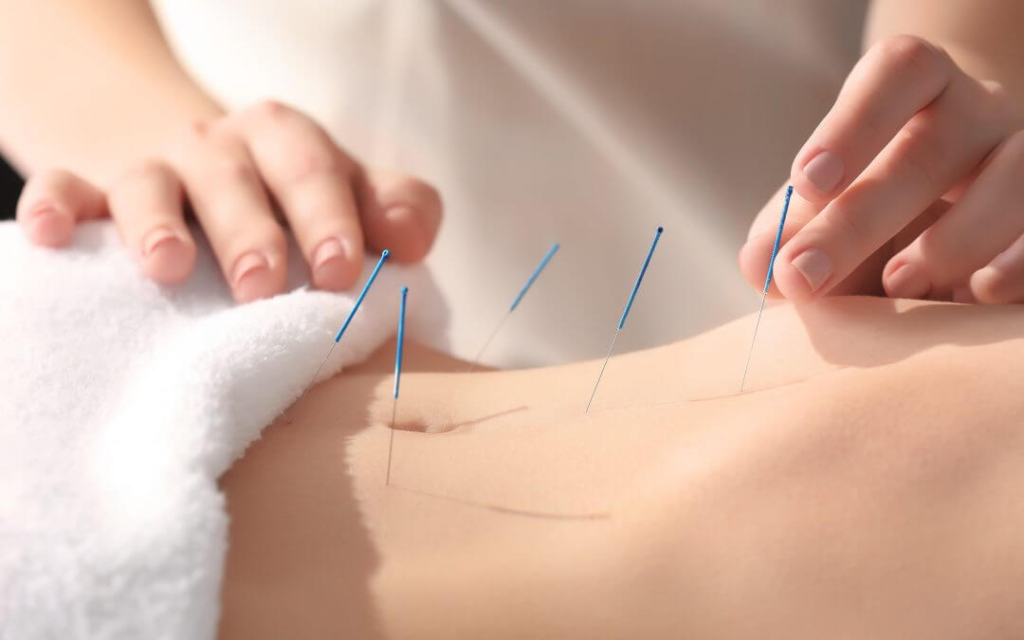Key Points to Remember
- Acupuncture is an ancient Chinese practice rooted in the balance of vital energy or “qi” through meridians.
- Modern research supports acupuncture’s effectiveness through the release of endorphins and impact on neural pathways.
- Acupuncture offers holistic benefits, including pain relief, stress reduction, improved sleep, digestive enhancement, and support for cancer patients.

In the realm of holistic medicine, acupuncture stands out as a time-honored practice that has been captivating the world with its healing potential. Rooted in ancient Chinese tradition, acupuncture has transcended centuries and continents, garnering attention for its holistic approach to health and well-being. In this article, we will delve into the depths of acupuncture, shedding light on its mechanisms, benefits, and answering some commonly asked questions.
Understanding Acupuncture: A Holistic Approach
- Origins and Principles: Acupuncture originates from Traditional Chinese Medicine (TCM), where it’s believed that the body’s vital energy, or “qi,” flows through pathways known as meridians. The insertion of thin needles at specific points on these meridians helps restore the balance of qi, promoting healing and well-being.
- The Science Behind It: While some skeptics question its efficacy, modern research has revealed the scientific basis of acupuncture. The stimulation of acupuncture points triggers the release of endorphins, which are natural pain relievers. Additionally, acupuncture has shown effects on neurotransmitters, inflammation levels, and even neural connectivity.
- The Acupuncture Session: A typical acupuncture session involves a thorough assessment by a trained practitioner. Fine, sterile needles are then inserted at precise points, and patients often experience minimal discomfort. The needles may be gently manipulated or stimulated by heat or electricity to enhance the therapeutic effects.
Holistic Benefits of Acupuncture
- Pain Management: One of the most renowned benefits of acupuncture is its ability to alleviate pain. From chronic back pain and migraines to arthritis and postoperative discomfort, acupuncture offers a drug-free alternative for pain relief.
- Stress Reduction: Acupuncture has a calming effect on the nervous system, making it a valuable tool for managing stress and anxiety. By regulating stress hormones and promoting relaxation, it contributes to overall mental well-being.
- Enhanced Sleep Quality: Many individuals struggle with sleep disorders. Acupuncture can help regulate sleep patterns by addressing underlying imbalances and promoting better sleep quality.
- Digestive Harmony: Acupuncture can aid digestion by improving gut motility, reducing inflammation, and addressing issues like irritable bowel syndrome (IBS) and acid reflux.
- Complementary Cancer Care: In some cases, acupuncture is used as a complementary therapy alongside conventional cancer treatments. It can help manage treatment-related side effects such as nausea, pain, and fatigue.
FAQs About Acupuncture
Q1: Is acupuncture safe?
A: When performed by a licensed and trained practitioner, acupuncture is considered safe. The use of sterile, disposable needles minimizes the risk of infection.
Q2: Does acupuncture hurt?
A: While you might feel a slight prick upon needle insertion, acupuncture is generally not painful. Most people find the experience relaxing.
Q3: How many sessions are needed to see results?
A: The number of sessions varies based on the condition being treated. Some people experience relief after a few sessions, while others might need more prolonged treatment.
Q4: Can acupuncture treat mental health issues?
A: Acupuncture can complement mental health treatment by promoting relaxation and reducing stress. However, it’s essential to consult a mental health professional for severe conditions.
In conclusion, acupuncture stands as a bridge between ancient wisdom and modern science, offering a holistic approach to healing. Its enduring popularity is a testament to its transformative potential in addressing a wide array of health concerns. Whether you seek relief from pain, stress, or simply a journey to holistic well-being, acupuncture presents itself as a viable and time-tested option.
As you embark on your acupuncture journey, remember that your safety and experience depend on choosing a qualified practitioner who understands the intricate balance of this ancient art. So, open yourself to the possibilities that acupuncture holds and discover the path to a harmonious and healthier you.


